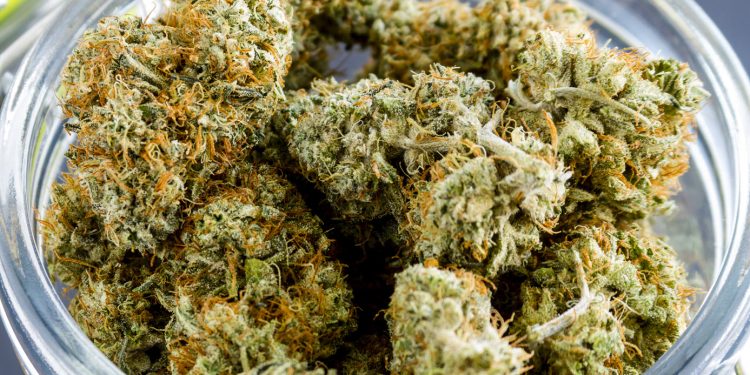Kush, a recently emerged substance, is wreaking havoc in West Africa, specifically in Sierra Leone, where it is believed to be responsible for the deaths of approximately twelve individuals weekly and the hospitalization of thousands.
To begin with we need to understand that ‘Kush’ can be a confusing term, as it applies to more than one type of drug material, depending on where you are in the world.
There are strains of cannabis referred to as ‘Kush’, such as Afghan Kush or Hindu Kush, as well as hybrids with other cannabis strains incorporating the term ‘Kush’ in their name. These are not new.
The latest ‘Kush’ is reportedly a blend for smoking, widely popular in West African nations. A significant portion of the details regarding this concoction is probably based on personal accounts and, therefore should be regarded cautiously.
In Sierra Leone, the medication is predominantly used by males between the ages of 18 and 25, which induces individuals to sleepwalk, stumble, hit their heads on solid objects, and walk into moving traffic.
READ MORE: Dr Arikana, Enabulele, Others Team Up For Ubuntu Awakening Summit
Kush should not be confused with the drug of the same name found in the US, which is a mixture of “an ever-changing host of chemicals” sprayed on plant matter and smoked. Kush in Sierra Leone is quite different; it is a mixture of cannabis, fentanyl, tramadol, formaldehyde, and – according to some – ground-down human bones.
The blending is done by local criminal gangs, yet the drugs are sourced internationally, undoubtedly aided by the internet and digital means of communication.
Although cannabis cultivation is prevalent in Sierra Leone, fentanyl is believed to be produced illicitly in clandestine labs in China and then smuggled to West Africa. Tramadol, on the other hand, originates from illegal laboratories scattered across Asia. Additionally, this concoction reportedly contains formaldehyde, which has the potential to induce hallucinations.
Where Is The Drug Found?
The drug is reported in both Guinea and Liberia, which share porous land borders with Sierra Leone, making drug trafficking easy.
Kush first emerged in Sierra Leone half a dozen or so years ago. Manufactured and distributed by criminal gangs, the drug typically costs 5 leones (20p) per joint – though many users will spend around £8 a day, a small fortune for a country with an average per capita income of under £400 a year.
The composition of the drug varies from place to place. Fentanyl and tramadol are said to be ingredients, as is formalin, a disinfectant. There are also several media reports of human bones being crushed up and added to kush, though there is no evidence to substantiate this.
The drug has become commonplace across Sierra Leone, with whole neighborhoods and communities addicted to the narcotic. But putting a precise figure on usage rates is difficult.
Kush costs approximately five leones (equivalent to 20 UK pence) per joint, which can be shared by two or three individuals. It is worth noting that up to 40 joints are consumed daily, resulting in a significant expenditure on drugs. This highlights the addictive properties of the blend, particularly in a nation where the average annual income per person is approximately £500.
The impact of the medication differs and relies upon the individual using it and the composition of the medication. Cannabis induces a diverse range of effects, encompassing feelings of euphoria, relaxation, and a modified state of awareness.
The drug poses a dual threat: the potential for self-harm to the user and the strong addictive properties of the substance. Additionally, there is the challenge of funding the next dose, which may lead individuals to resort to prostitution or criminal behavior.
Sierra Leone Psychiatric Teaching Hospital And How It Has Been Putting Up With ‘Kush Addicts’
The Sierra Leone Psychiatric Teaching Hospital in Freetown has reported a significant increase in the number of addicts seeking treatment in recent years. The daily influx of referrals continues to rise, leading to many patients being sedated upon admission to the facility as a result of their aggressive behavior.
“We have already recorded nearly 2,000 cases of kush addicts in 2023 at the hospital. Many are dying in homes and on the streets,” says Dr Jusu Mattia, acting medical superintendent at the center. In 2020, it identified 47 people as users. In 2022, it was 1,101. Most of the patients are men between 18 and 25.
“The kush drug crisis is everywhere, but only a few are referred and most of those treated end up relapsing,” adds Dr Mattia.
The Teaching Hospital offers isolation treatment lasting from three to six weeks, along with antipsychotic medication to assist patients in overcoming their addiction. It stands as the sole facility in Sierra Leone providing specialized care for individuals addicted to kush.
There are only five psychiatrists in the whole country which is home to approximately 8.4 million people, as reported by the World Health Organization. This situation makes it extremely challenging to address the escalating epidemic.
Kush Is As ‘Dangerous’ As Heroin Or Cocaine
Kush addiction has the potential to escalate severe psychiatric problems in certain individuals. Additionally, there have been instances where individuals have experienced swelling and infections, resulting in open wounds on their legs. However, the medical community has yet to provide a definitive explanation for these occurrences.
The drug can also prove fatal. When high, users have been known to bang their heads repeatedly against walls, walk into traffic or fall from high places.
There is no official data available for deaths related to the drug, but health experts estimate around a dozen kush users die weekly in Sierra Leone, with their bodies often recovered from the streets and slums.
Like in Sierra Leone, unemployment among the young is fuelling addiction in Liberia. Yet the high prevalence of post-traumatic stress disorder in the population – an estimated 3.4 people suffer from the condition, a by-product of the nation’s bloody civil war throughout the 1990s – is also a factor.
Liberia’s limited health resources – practically non-existent in parts of the country – have been unable to accommodate this huge psychological need. Many have subsequently turned to kush instead.
However, Sierra Leone is not the only country facing the consequences of kush. A surge in addiction is spreading through West Africa, as the tragic events in Freetown are now being mirrored in the cities of Liberia and Guinea. Reports indicate that over a million individuals in the area are currently struggling with addiction.
The country’s challenges with drug issues have significantly become intertwined with politics. In the most recent election campaign, the incumbent president George Weah, a former footballer for AC Milan and Chelsea, faced allegations of allowing the drug’s use and distribution within the country.
Guinea is also currently facing challenges in controlling a significant rise in the use of kush over the last three years, as reported by the health ministry of the country.
As with Liberia and Sierra Leone, the nation’s healthcare services are severely limited – there is just one specialized center, based in Conakry, the capital of Guinea, that provides treatment for alcohol and drug abuse.
Authorities in Guinea claim the kush drug is imported into the country from Sierra Leone through porous borders.
Sierra Leone’s Kambia district, situated adjacent to Guinea, has gained recognition as a significant hub for drug trafficking and is increasingly garnering attention from the local law enforcement authorities.
Across Sierra Leone, more than 100 drug users and dealers have been convicted, with dozens of cartels shut down by police.
But Dr. Mattia said that “the issue of youth intoxicating themselves with kush is not a criminal justice problem, but rather a health and social related problems that need to be addressed holistically”.










